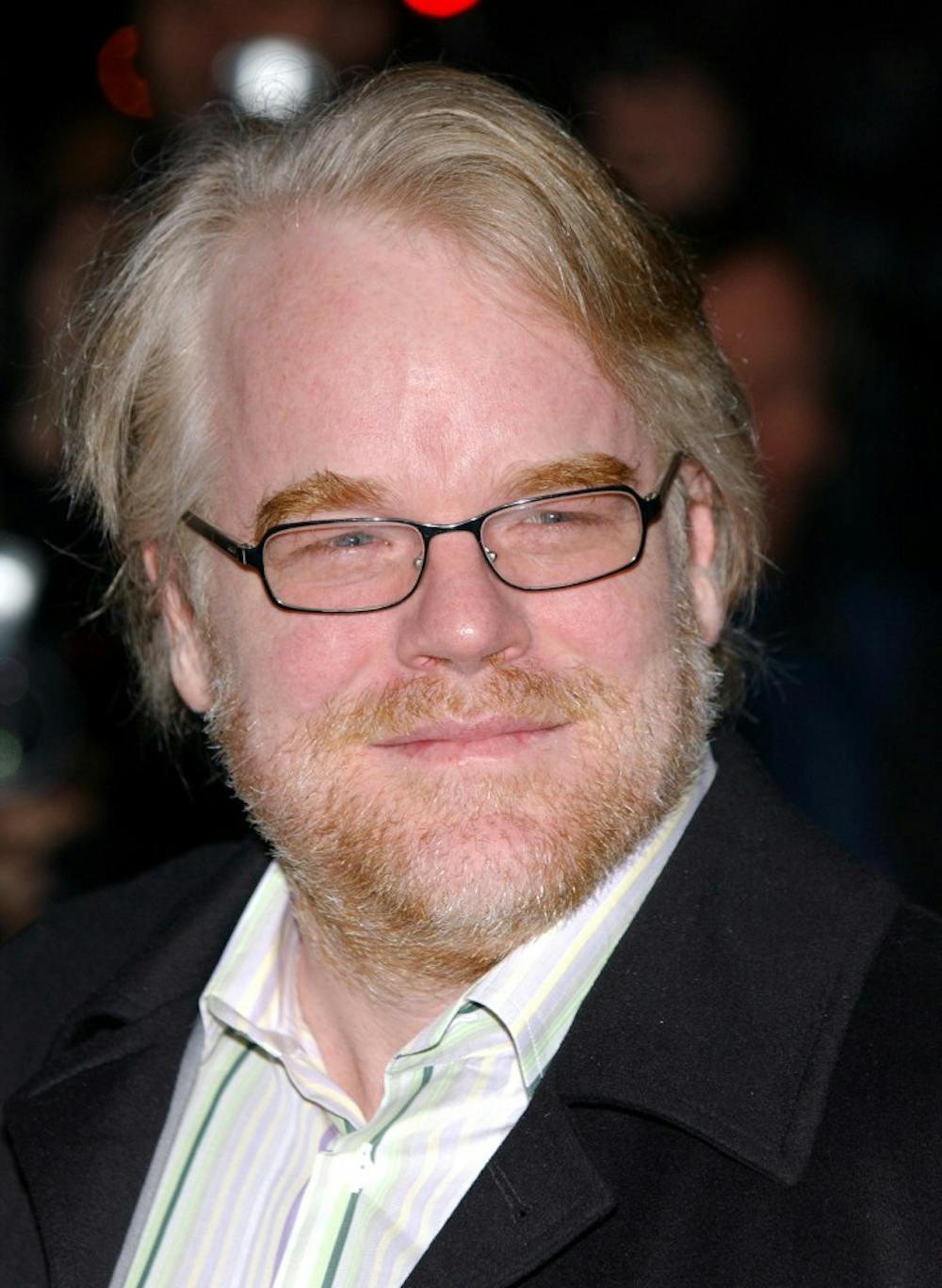Late actor was a service to cinema and his craft.
The term “greatest actor of his generation” is not given lightly, but in the case of Philip Seymour Hoffman, it’s richly deserved.
Over the course of his more than 20-year career in acting, Hoffman, who died of an apparent drug overdose on Sunday, cemented himself as an incredibly dedicated actor, throwing himself into every role no matter how small. He could bring pathos to even the smallest, silliest role, as evidenced by his role as Scotty the gay boom guy in Paul Thomas Anderson’s “Boogie Nights.” It’s a small part that could easily have gone broad, but Hoffman makes Scotty’s buffoonish crush human and vulnerable.
Director Paul Thomas Anderson excelled in these broken, complicated characters, making his partnership with Hoffman a natural fit. The two collaborated on five films, including “Boogie Nights,” “Magnolia,” and the recent “The Master,” and each one of them gave Hoffman a memorable, unique role. He was a chameleon, ably switching gears to play both the quiet moral center of “Magnolia” and the erupting antagonist in “Punch-Drunk Love.” However, what will probably go down as his finest work with Anderson is “The Master,” where Hoffman played the mercurial and charismatic cult leader Lancaster Dodd. “The Master” was a laser-focused showcase for its actors, Hoffman and Joaquin Phoenix, and his relish for the role was clearly visible on-screen.
Of course, Hoffman had more than one “role of a lifetime.” The breakout role that pushed him from supporting actor to leading man also won him an Oscar for Best Actor. He starred in “Capote” as the preening, morbid writer Truman Capote, playing the man to perfection as he worked on his true crime novel “In Cold Blood.” In “Doubt,” he played the affable, ambiguous Father Flynn, elevating a sometimes slow movie with his performance.
Perhaps his finest role was in the postmodern masterpiece “Synecdoche, New York,” written and directed by Charlie Kaufman. Hoffman played theater director Caden Cotard who, in response to his life decaying, masterminds an uber-realistic play that soon begins to blur the lines between fiction and reality. Hoffman was masterful in the role, bringing to life the obsessive escape of the artist and guiding the character through twisted relationships and the deterioration of his body and mind.
It was a tour de force, as was his role in “The Master,” as was his role in “Capote,” which goes to show what a truly brilliant actor he was. Even in more mainstream action offerings such as “Mission: Impossible III” and “The Hunger Games: Catching Fire,” he gave each role his all, elevating “Mission: Impossible” with his truly chilling villain and lending “Catching Fire” some ambiguity.
Hoffman died in the prime of his career and would have no doubt delivered countless classic performances had we not lost him. He was set to star in his television debut “Happyish” on Showtime, and was just beginning a promising directorial career.
The alleged circumstances of his death were tragic — after being clean for 23 years, it was reported that he had relapsed on heroin. It goes to show the danger of the drug, and how even after over two decades it can return to take a life. Addiction is dangerous and chemical, and Hoffman was the victim of it.
Philip Seymour Hoffman leaves behind a wife and three young children, and a oeuvre of remarkable roles that is genuinely one of the best of any actor. He spent a full half of his life performing, and his dedication to it was proven time and time again by his complete inhabitation of his roles. Hoffman, like any truly great artist, has left behind an inimitable legacy.

